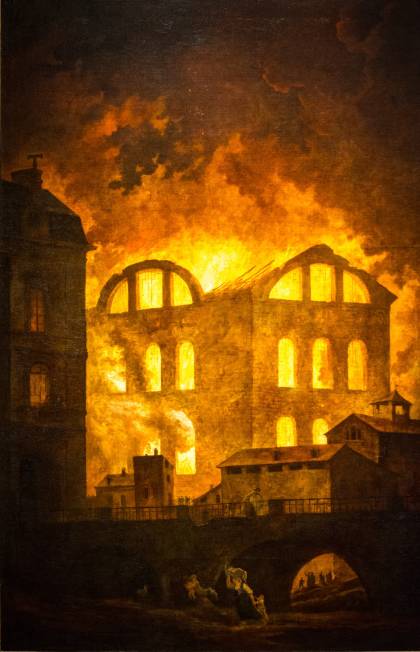Laura Vasilyeva: "The Ransacked Earth and the Opera House"

Description
Laura Vasilyeva, an assistant professor of musicology at Peabody, will give a talk titled "The Ransacked Earth and the Opera House" as part of the Department of Modern Languages and Literatures' Global Ecologies lecture series.
Please email Marta Cerreti at mcerret1@jhu.edu or Brad Harmon at bharmon6@jhu.edu for the Zoom link.
Abstract:
In the 1800s, it was common for opera houses to be cast as havens of "rarified" and "pure air," even before these became some of the first-ever venues to have ventilation and climatic controlled installed. At the same time, scholars had started to raise serious concerns about the "vitiated" state of the earth's air overall. Antonio Stoppani and Giuseppe Colombo, colleagues in Milan, issued some of the loudest and most prescient warnings in the later 1800s that if man continued to "ransack the earth" for fossil fuels, it could in time lead to environmental collapse. This talk presses on contradictions inherent in this moment to understand how willful denial of climate change assumed discursive contours around this time. I focus on Colombo's paradoxical role in the installation of the first-ever electrical network in Europe. Launched in 1882, the network was reliant on fossil fuel combustion to create electrical power. A model for electrical networks across the world, the experiment mobilized creation of modern energy infrastructures as we know them, and thus an incalculable increase in the fossil fuel exhumed, burned and shunted back into the atmosphere. Intriguingly, Colombo ensured all his network's current was directed to the preeminent Teatro alla Scala opera house in Milan at first, while use of opera houses elsewhere as promotional forums for the electrical became common in the decades that followed. I reveal here how continued association of opera houses with "pure air" in the later 1800s became a convenient distraction from their role in the electrical, with all its dirty consequences. I show in turn how, across countless operas, the electrical was aestheticized: fashioned as a force that leaves almost no trace on the air, it was cast as something as sublime and immaterial as music itself was commonly said to be.
This series is co-sponsored by the Department of Modern Languages and Literatures, the Center for Advanced Media Studies, the Program in Latin American Studies, the Department of Anthropology, and the Program for the Study of Women, Gender, and Sexuality.
Who can attend?
- General public
- Faculty
- Staff
- Students







